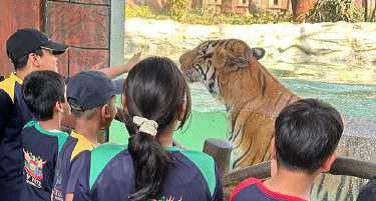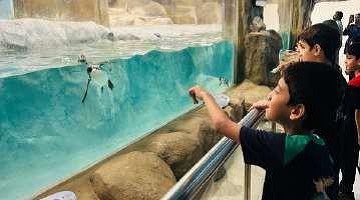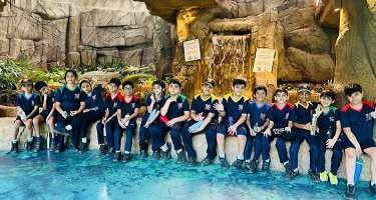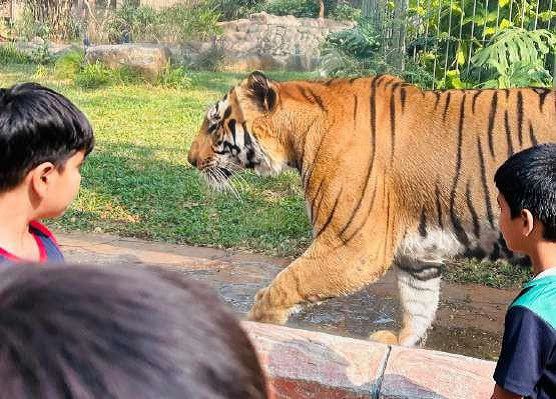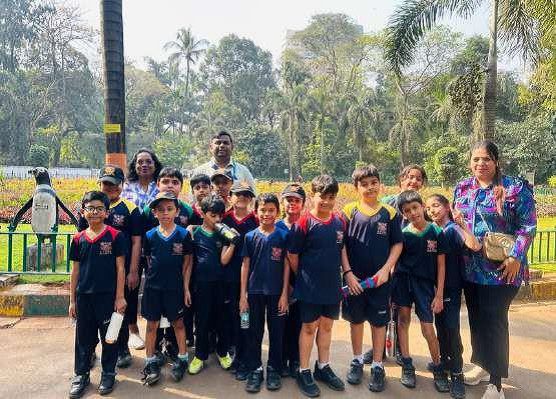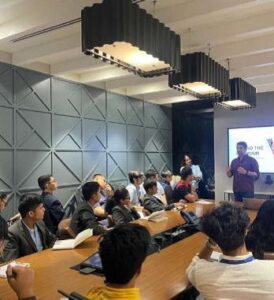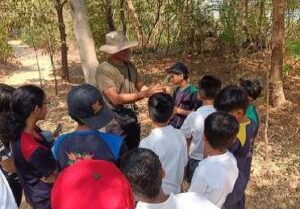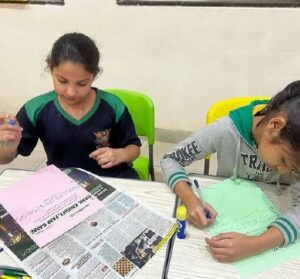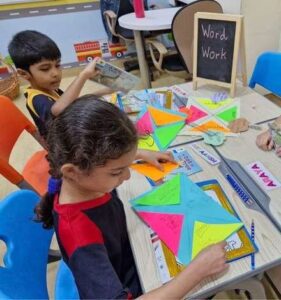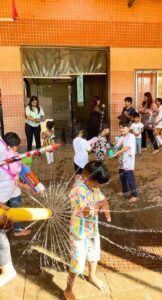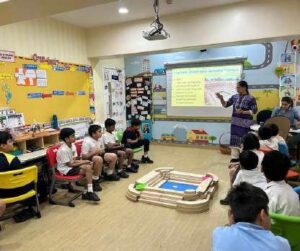Our Grade 3 learners embarked on an exciting educational visit to Byculla Zoo, exploring the diverse habitats of animals, plants, and birds. This immersive experience allowed them to make real-world connections to their ongoing unit of inquiry, deepening their understanding of how living organisms interact with their surroundings and the factors influencing their life cycles.
As they toured the zoo, students observed various animals, including tigers, deer, and exotic birds, analyzing their unique adaptations and discussing the essential elements of their habitats, such as food, water, and shelter. They also explored the role of plants in sustaining ecosystems, learning how they provide oxygen, food, and protection to many creatures. A key focus of the trip was understanding life cycles of different species. Learners carefully observed different species, from birds to amphibians and mammals, learning about their stages of development—from birth to adulthood. Through engaging discussions, they explored how external factors like climate change, pollution, and human intervention can impact the survival of species.
This enriching field trip reinforced classroom learning engagingly and interactively. It sparked curiosity, encouraged meaningful discussions, and deepened students’ appreciation for the delicate balance of nature. The experience inspired them to think critically about the importance of conservation and their role in protecting the environment.


